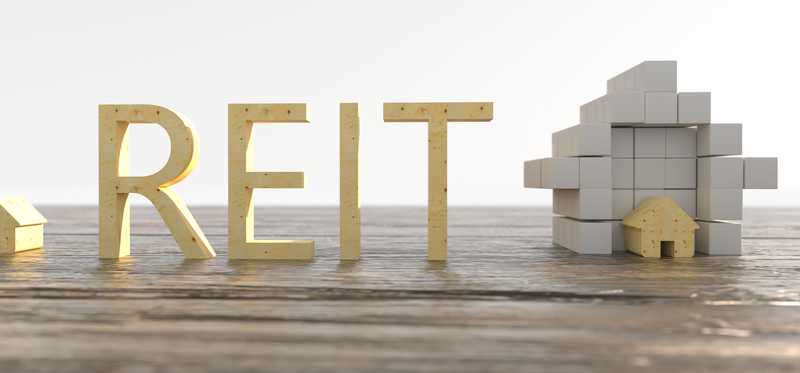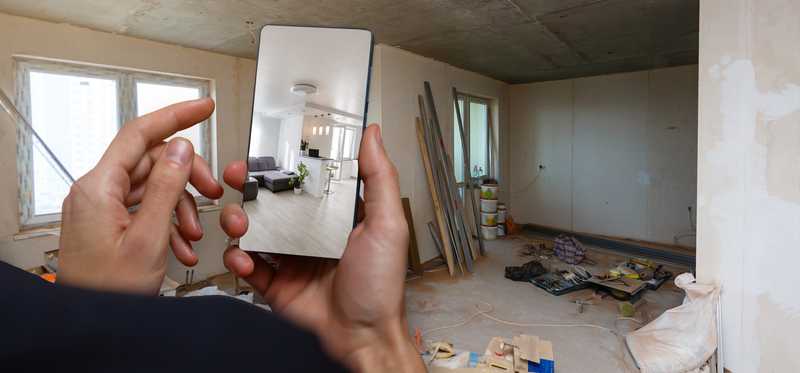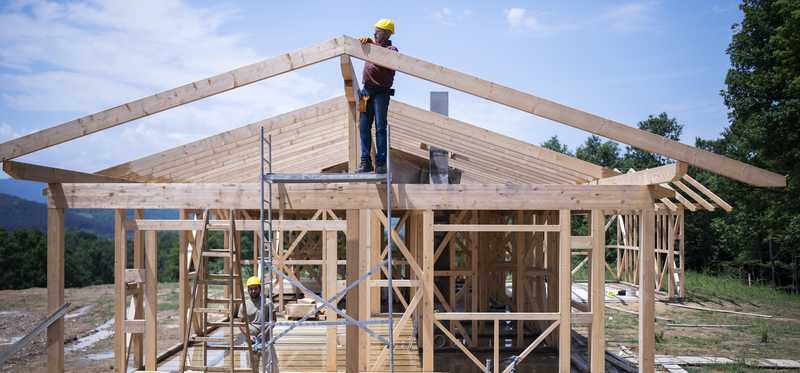Want To Get Richer? 10 Real Estate Tips That Could Generate Long-Term Returns

Want To Get Richer? 10 Real Estate Tips That Could Generate Long-Term Returns
A port in a storm
At a time when asset classes like stocks and cryptocurrency are tumbling in value, more investors may be taking a look at real estate.
After all, the real estate sector not only has boomed over the last two years but also tends to be less volatile than the stock market. In fact, prior to the housing bust in the 2000s, there had never been a sustained national decline in home prices in the U.S.
If you're looking for ways to make real estate work for you, keep reading below.
5 Stocks Under $49
Presented by Motley Fool Stock Advisor
We hear it over and over from investors, "I wish I had bought Amazon or Netflix when they were first recommended by The Motley Fool. I'd be sitting on a gold mine!" It's true, but we think these 5 other stocks are screaming buys. And you can buy them now for less than $49 a share! Click here to learn how you can grab a copy of "5 Growth Stocks Under $49" for FREE for a limited time only.
Previous
Next

1. Buy REITs
Probably the easiest way to get exposure to real estate is to buy real estate investment trusts, or REITs. These are stocks of real estate holding companies required by law to pay out at least 90% of their profits as dividends.
REITs run the gamut of real estate classes from residential to industrial to commercial, featuring everything from data centers to single-family homes to self-storage facilities.
Since these companies are landlords, they are almost always profitable, and the dividend payout rule means many of them offer attractive dividend yields.
Previous
Next

2. Get a rental property
If you're not afraid of getting hands-on with your real estate investing, acquiring a rental property is one of the best ways to do so. Becoming a landlord is often a smart way to make long-term income because rents generally rise over time, while your mortgage payments will be flat, and your property will likely increase in value.
In an ideal situation, your tenant will pay for your mortgage while you get to benefit from the property appreciation and, eventually, a mortgage-free income stream.
If you're uninterested in the responsibility of being a landlord, consider working with a property management company that can handle maintenance and potential emergencies.
Previous
Next

3. Get into the short-term rental market
If you're interested in dabbling in being a landlord before going all-in with your own rental property, you may want to consider trying a vacation rental or short-term rental first.
These properties on websites like Airbnb are easy to get started. In fact, you can even try renting out a room in your home or adding a guesthouse to your property. Depending on your location, a short-term rental property can be quite lucrative, especially if your area gets a lot of visitors.
If you travel frequently, you might want to consider renting out your home while you're away. Alternatively, you could buy a second house as a vacation home and rent it out when you're not using it.
ALSO READ: 5 Explosive Vacation Rental Markets To Tap Into Before Summer
Previous
Next

4. Consider house flipping
Home flipping often gets attention in bullish real estate markets, and there's good reason for that. If you find the right property, you can make good money quickly flipping homes, especially if you have a good eye for home improvement.
Home flipping is best suited for more sophisticated investors who know their local market well and have experience renovating homes.
If you aren't experienced with that, there are real estate crowdfunding sites like Crowdstreet and Fundrise, where you can invest with home flippers and other kinds of real estate businesses.
Previous
Next

5. Own mortgage bonds
If you're a homeowner, you're probably used to paying a mortgage, but you can also invest in real estate on the other side of the equation -- by owning mortgage bonds.
The easiest way to do this is to buy shares in a mortgage exchange-traded fund (ETF), and with mortgage rates rising, now could be a good time to do so, especially if you're looking for consistent cash flow. Investors have an array of choices, including commercial mortgage-backed securities and short-duration, long-duration, and affordable housing, as a few examples.
5 Stocks Under $49
Presented by Motley Fool Stock Advisor
We hear it over and over from investors, "I wish I had bought Amazon or Netflix when they were first recommended by The Motley Fool. I'd be sitting on a gold mine!" It's true, but we think these 5 other stocks are screaming buys. And you can buy them now for less than $49 a share! Click here to learn how you can grab a copy of "5 Growth Stocks Under $49" for FREE for a limited time only.
Previous
Next

6. Buy real estate stocks
For stock market investors, there are more options in the real estate sector than just REITs. There are several homebuilder stocks to choose from as well, including some homebuilder ETFs. You can get exposure to the short-term rental market through Airbnb, home improvement services through a stock like Angi, or home improvement retailers through shares in Home Depot or Lowe's.
Even investing in commodities like lumber can offer a way to get exposure to real estate, as home construction is one of the primary uses for lumber.
Previous
Next

7. Invest in your own home
If you're already a homeowner, the first real estate investment you may want to make is in your own home. Projects like remodeling your kitchen or improving your home's curb appeal with new landscaping can pay off when you sell your house and add to your home's appraised value if you're looking to take out a home equity loan.
If you own your own home, it's probably your biggest investment, so it makes sense to make any needed upgrades before committing to a new property.
Previous
Next

8. Find a cheap home on a nice block
Whether you want to flip a house or just get a good return on your investment, one of the best ways to do so is to buy a cheaper home on a nice block, especially if you have money to invest in the property.
That strategy usually gives you a head start in price appreciation because the home value is determined -- at least by appraisers and real estate agents -- based on comparable homes in the neighborhood. So, if the neighboring homes are more expensive and you can bring your home up to par with those, its value should appreciate accordingly.
ALSO READ: Are You Ready to Buy a Home? Here's What Suze Orman Says
Previous
Next

9. Buy in an up-and-coming area
Transforming your home is one thing, but it's even better if you can buy a property in a transforming neighborhood. While the wave of gentrification in many U.S. cities may have ebbed during the pandemic, there are still opportunities to invest in up-and-coming areas, especially if you know a market well.
Second-home areas near major cities have taken off during the pandemic and could continue to do so as remote work is likely to last beyond the pandemic for many corporate workers.
In cities, you'll want to look for under-priced neighborhoods gaining popularity with young people and with good transit connections. A handful of hip local places, like a coffee shop, bar, or restaurant, is also a good sign.
Previous
Next

10. Find the right people
If you're investing in real estate hands-on, you'll be working with other people along the way, including real estate agents, mortgage brokers, and contractors if you plan to do home improvement projects.
To get the best return on your investment, finding skilled, trustworthy people to work with is essential. Real estate is ultimately a highly fragmented market, and every home is unique.
So, the difference between good and bad advice from an agent or builder can be huge. Markets also change quickly, so it's good to have someone on your side who has their finger on the pulse of the market. Make sure you interview these people thoroughly and check references.
5 Stocks Under $49
Presented by Motley Fool Stock Advisor
We hear it over and over from investors, "I wish I had bought Amazon or Netflix when they were first recommended by The Motley Fool. I'd be sitting on a gold mine!" It's true, but we think these 5 other stocks are screaming buys. And you can buy them now for less than $49 a share! Click here to learn how you can grab a copy of "5 Growth Stocks Under $49" for FREE for a limited time only.
Previous
Next

A good way to diversify
If you're already invested in stocks, real estate is a great way to diversify your investments, and if you're currently renting your home, starting out as a homeowner is an easy way to do it and save on your rent expense.
If owning your own home isn't for you, there are still a number of ways to get exposure to the real estate sector through investing in REITs, real estate stocks, or through a crowdfunding mechanism like Fundrise.
When the stock market is as volatile as it is today, it's good to know you have exposure to a productive asset class with a long track record of gaining value.
Jeremy Bowman has positions in Airbnb, Inc. The Motley Fool has positions in and recommends Airbnb, Inc. and Home Depot. The Motley Fool recommends Lowe's. The Motley Fool has a disclosure policy.
Previous
Next
Invest Smarter with The Motley Fool
Join Over Half a Million Premium Members Receiving…
- New Stock Picks Each Month
- Detailed Analysis of Companies
- Model Portfolios
- Live Streaming During Market Hours
- And Much More
READ MORE
HOW THE MOTLEY FOOL CAN HELP YOU
-
Premium Investing Guidance
Market beating stocks from our award-winning service
-
The Daily Upside Newsletter
Investment news and high-quality insights delivered straight to your inbox
-
Get Started Investing
You can do it. Successful investing in just a few steps
-
Win at Retirement
Secrets and strategies for the post-work life you want.
-
Find a Broker
Find the right brokerage account for you.
-
Listen to our Podcasts
Hear our experts take on stocks, the market, and how to invest.
Premium Investing Services
Invest better with The Motley Fool. Get stock recommendations, portfolio guidance, and more from The Motley Fool's premium services.